Favourite fictional characters of 2021
Who, if I hadn’t met them in media in 2021, would my life have been poorer for it?
Last year, I shared a handful of the most impactful characters I encountered in media in 2020. It was a surprisingly revealing exercise, so I’m repeating it.
This list answers the question “Who, if I hadn’t met them in media in 2021, would my life have been poorer for it?” (No spoilers)
Tanjiro (Demon Slayer)
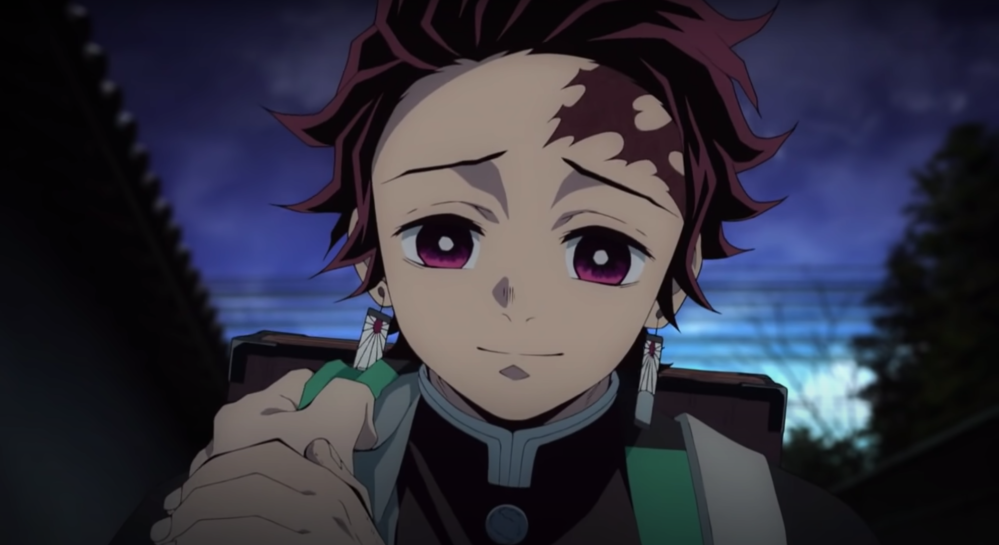
Demon Slayer was my absolute favourite anime of 2021, and the show that helped me realise that anime could be art.
Tanjiro is a teenage boy who comes home to discover that his entire family has been murdered by demons, and that his sister has been turned into one. He sets out to find a cure for his sister while making sure no-one else suffers the horror that befell his family.
It’s a simple premise, and it might have been enough for Demon Slayer to be a show that was merely visually stunning. This show is brutally beautiful in a way that defies description. It’s like a painting brought sinuously to life.
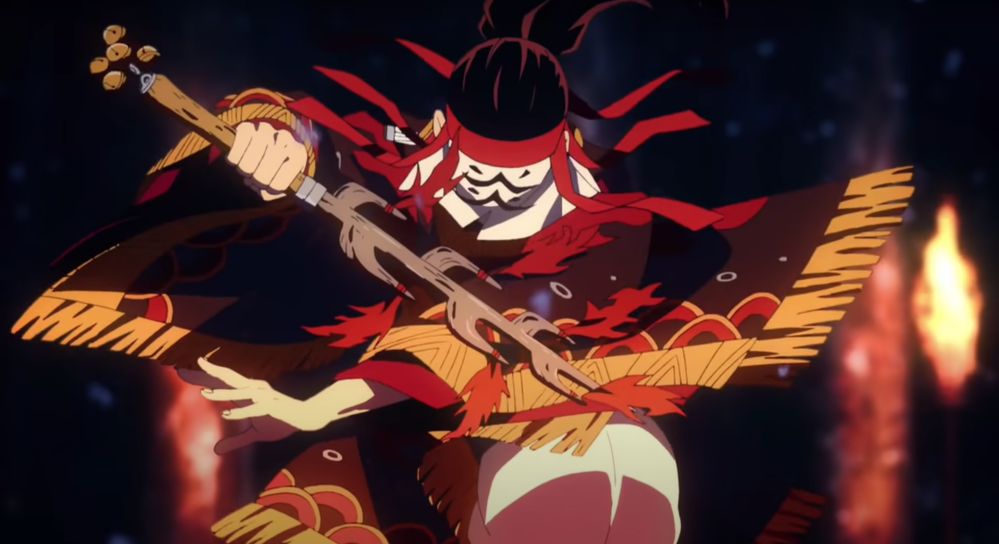
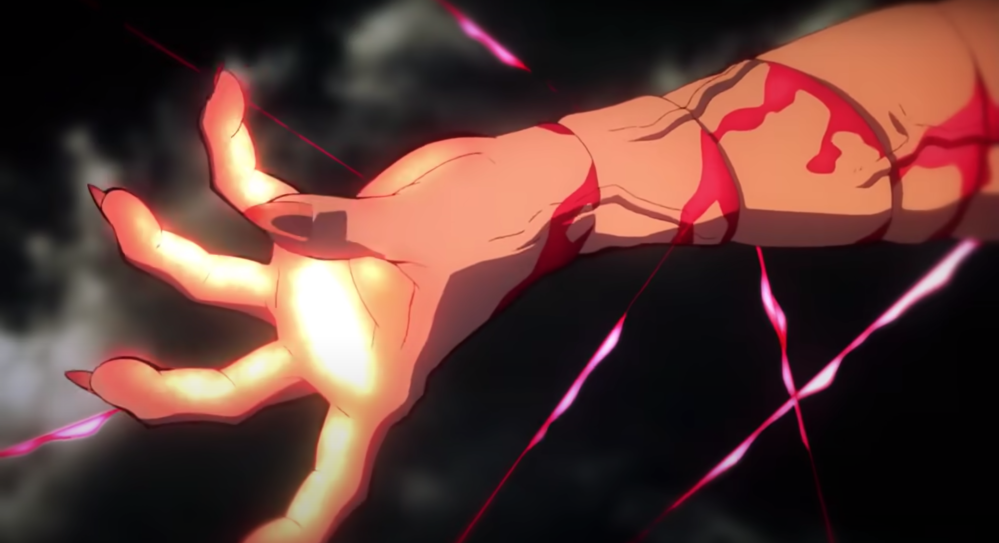
Demon Slayer is all this, and yet somehow manages to be even more: a painfully, beautiful meditation on kindness compassion.
Tanjiro kills monsters, but he also humanizes them, without making excuses for the harm they’ve caused. There’s a scene early in the show where he looks upon one of the first demons he’s killed, and there’s this look on his face. It’s not disgust. It’s a kindness that’s deeper than pity. The only word I can think of that encompasses it is compassion. He asks “How did it come to this?”
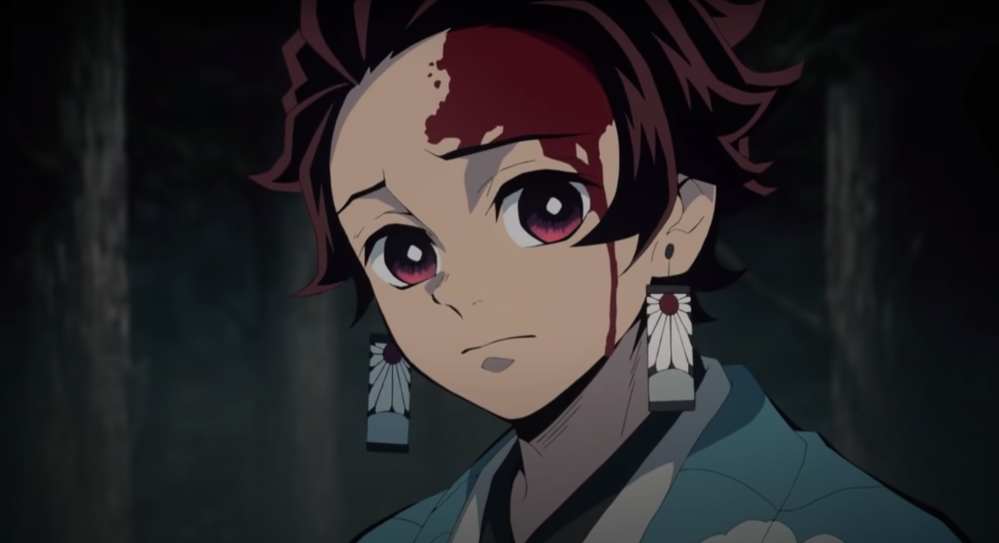
For many of the creatures he destroys, he’s the only person there to witness their final moments. In those last seconds, their lives flash before their eyes, and they relive the circumstances that brought them to this point.
There is anger, sorrow, sometimes regret, and while the show is very careful never to justify their crimes, it does a great job showing how society’s failings come back to harm it. In these moments, I’m reminded of this line from Janice Lee’s novel, Daughter: “Draw a monster. Why is it a monster?”
As he holds them, at the the end of their unnatural lives, he is their hero too.
Tanjiro tells us that all of us are worthy of grace. Even the worst of us.
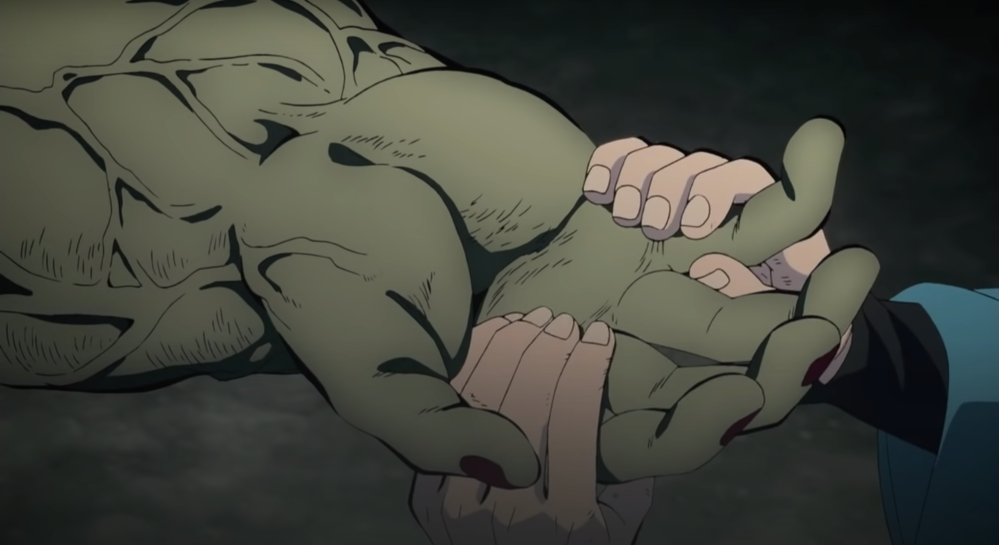
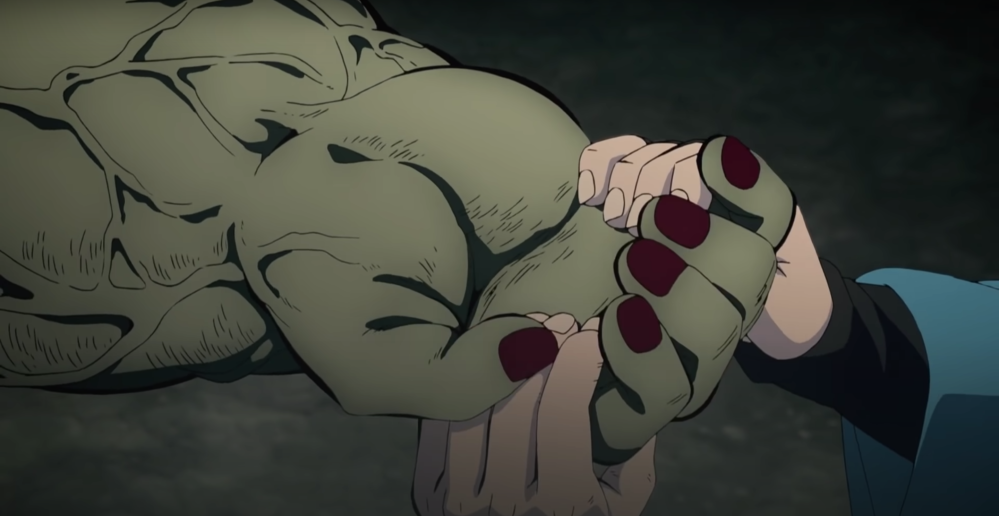
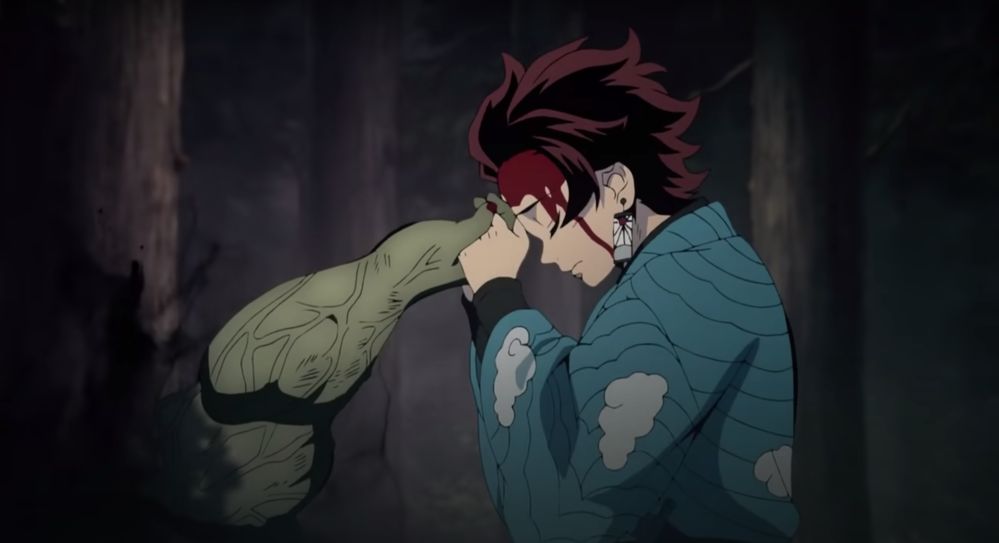
The cast of Black Clover
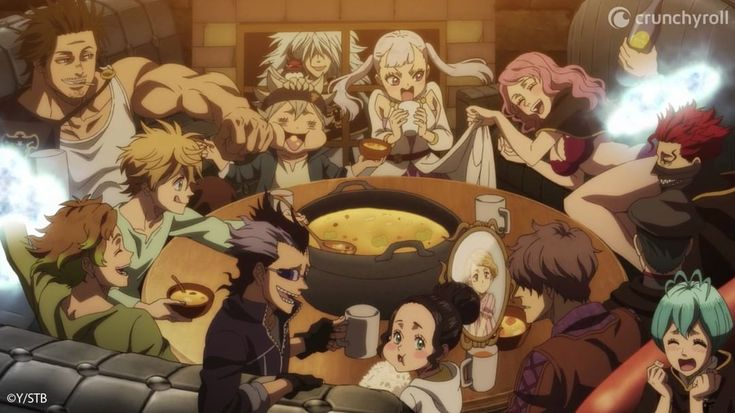
By all rights, Black Clover should be an inoffensively forgettable anime. The plot is predictable, the animation quality is a little uneven, and there are a surprising number of filler episodes. And yet, somehow, this show was the vehicle for two messages I needed to receive.
The first is that the only defeat is despair. You only lose if you stop trying. As long as you don’t give up, you haven’t lost yet. And when you try again, you give others permission to try again also.
The second message is more startling. Black Clover tells us that there are no unnecessary lives.
Even our own.
Rengoku (Demon Slayer: Mugen Train)
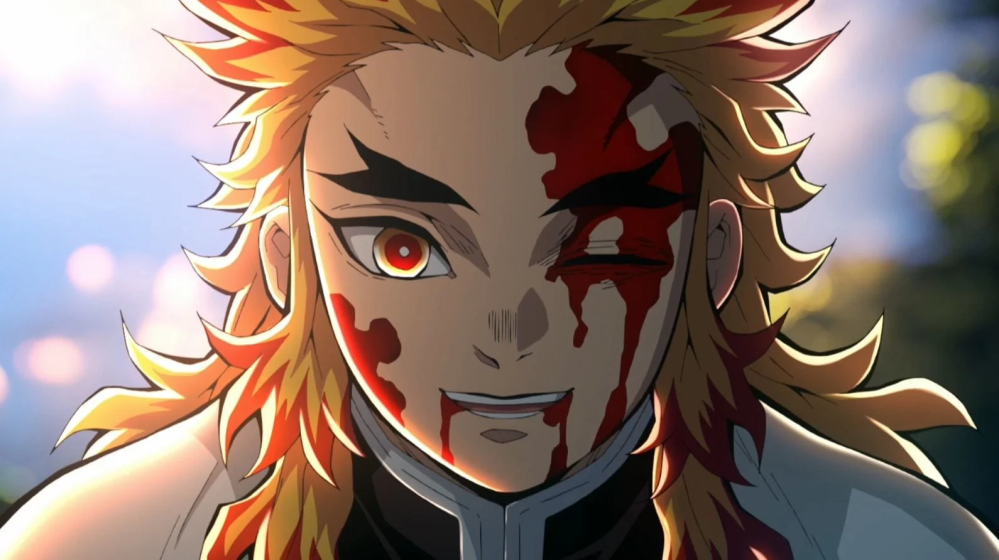
Rengoku tells us that we get up. We get up every time, “no matter how devasted you may be by your own weaknesses or uselessness.”
That words like “responsibility” and “duty” and “honour” mean things, and above all, that we become strong for others.
“Set your heart ablaze.”
Savn (Athyra)
Athyra is one of the fifteen books in Steven Brust’s ongoing Vlad Taltos fantasy series, which features a smart-mouthed assassin and his equally mouthy familiars who can’t seem to quit getting in the way of horrifically powerful people, such as undead barons, several politicians, a handful of gods, and things that are a step above gods.
Taltos books tend to be fast-paced, high stakes, often hilarious capers. Athyra is very much not that. This is not a fun book. It’s a grim, brooding thing, and yet it’s undeniably one of my favourites in the series.
When Taltos’ past catches up with him in a very bad way, only his unlikely friendship with a village boy, Savn, can save him. Savn is quite literally just a boy (only a few hundred years old, which is child-aged for his long-lived race) who has no other significant qualities other than that he’s very thoughtful. Simply a good, kind boy who is figuring things out.
Why was Savn one of my favourite characters of 2021? I think part of it is that for much of my life, I’ve been responsible for young men in one way or another (first as the eldest of three brothers, then in positions of responsibility in boarding school, etc) and this might be the first example I’ve seen in literature that comes close to correctly describing the experience of watching a young person coming into their own.
I love that Savn is always allowing himself to be surprised by himself. It’s wonderful to watch him become…awake to himself? Like watching a newborn discover their hands for the first time.
He made it on time for the evening meal, which prevented Mae and Pae from questioning him. Polyi, as usual, chattered throughout the meal, but Savn, who wasn’t really listening, caught a few pointed remarks about himself. Fortunately, Mae and Pae didn’t pick up on them.
That night, Savn fell asleep at once and while he slept, he dreamed that he stood in the street in front of Tem’s house, while Lova stood in the middle of a faceless crowd and looked at him adoringly as he made the ground open and close, and made fire fall from the sky. When he awoke, he remembered the dream, and remarked to himself, “That’s odd. I hadn’t even known I liked her.”
It was boring drudge-work, but also easy and satisfying now that they had the system worked out, and he could hear the steady shhhick, shhhick as Mae and Pae worked from the other end. Soon—probably tomorrow, he decided, they would meet, and that would be the end of the harvest for this year. Then Mae and Pae would prepare the ground for the winter, and next year they would start all over again, and the next year, and the next, until the day Savn would begin earning money as a physicker himself, either in Smallcliff or elsewhere. Then there would be a few lean years before he could afford to send enough money back to pay for the work he could not do, but after that Mae and Pae would be able to hire someone, and after that he could begin saving, until he had so much money that he’d be able to travel, and—
When did I decide I wanted to travel? he asked himself.
I love Savn’s endless curiosity. And it’s not a genius level intellect, outside of reach of mere mortals. Just the running stream of quiet questions that everyone has, but which some people force themselves to ignore.
When he was finished, he went out behind the small barn, sat down on one of the cutting stumps, and listened to the copperdove sing her night song from somewhere behind him. The copperdove would be leaving soon, going south until spring, taking with her the sparrow and the white-back, the redbird and the daythief. But for the first time, Savn wondered where they went, and what it was like there. It must be too hot for them in the summer, or they’d remain there, but other than that, what was it like? Did any people live there? If so, what were they like? Was there a Savn who watched the birds and wondered what happened when they flew back north?
I love how Savn lets himself be completely, vulnerably open to the world. It’s powerful to be there when he becomes awake to how beautifully vast the world is, and how lucky he is to Be anything at all.
I could just go, he thought. Not go back inside, not stop to get anything, just walk away. Find out where the copperdove goes, and who lives there, and what they’re like. I could do it now. But he knew he wouldn’t. He’d stay here, and—
And what?…
Why am I suddenly thinking about these things?
And, What is happening to me? There was a sudden vertigo, so that he almost sat down, but he was afraid to move, for the instant was as wonderful as it was terrifying. He didn’t want to breathe, yet he was keenly aware of doing so, of the air moving in and out of his lungs, and even filling his whole body, which was impossible. And in front of him was a great road with brick walls and a sky that was horribly black. The road went on forever, and he knew that up ahead somewhere were branches that could lead anywhere. And looming over them was the face of the Easterner he had just met, and somehow the Easterner was opening up some paths and closing others. His heart was filled with the joy of loss and the pain of opportunity.
And I love when his diligence and thoughtfulness is rewarded with small victories. In an especially dire moment, he calls upon everything he’s learned from his apprenticeship with a physicker, and heals one of Taltos’ injuries which would have been fatal had he not been there.
He leaned against the tree again. He wondered if he ought to go to Master Wag’s where he was expected, but he didn’t want to leave Vlad alone; he preferred not to take any chances on someone or something, by accident or design, undoing all of his work.
As this thought formed, he realized that he felt rather fine; he had managed a very difficult procedure under far from ideal conditions, in spite of having only the vaguest idea of what the problem was, much less the solution. He looked at Vlad and smiled, then looked at the two jhereg, who were now seated next to each other on the ground, their wings folded.
“I feel like I can do anything,” he told them.
Savn is not special. It is refreshing to see a Helper who is often not brave. He is not especially strong, or particularly clever, and definitely not magic. But he shows up anyway, and I love him for it.
The cast of My Hero Academia season 4
I’ve been a fan of My Hero Academia for a while, but season 4 might be my favourite season yet.
This was the season where we got to learn a lot more about the supporting characters, and while I love Deku, it was refreshing to see other characters acquire a lot more depth. Several of these secondary characters embodied the virtue of courage, which is the ability to do the hard, brave thing, especially when you’re scared.
This season also really underscored the idea that you win by compounding your strengths. No matter how “useless” the gifts you were born with might appear, you can beat people who have seemingly more obvious strengths by applying your abilities creatively. (Very minor spoiler until end of paragraph) One of my favourite examples of this principle in the show happens in season 5, during an inter-class competition, where one group underestimates a character whose power is that she can make mushrooms sprout anywhere. Compared to the firepower that others are packing, this ability appears to pose no threat…until a critical moment when she makes mushrooms bloom within the lungs and windpipe of her opponent.
You win by compounding your strengths.
This is a show that wears its heart on its sleeve, and so while it shouldn’t be a surprise, it was still very affecting to see several examples of men being tender and caring with each other. And still within the theme of care, there were several powerful moments highlighting the responsibility of care between adults and kids, mentors and their wards. There is a moment where the committee of heroes is going round in circles debating a course of action and a heroine, who takes great care to nurture female heroes in her agency, cuts through with the statement “A girl is in trouble. That’s all that matters.”
I don’t know why, but there was just something so affirming watching adults, even fictional ones, be uncompromising in their defence of children. There is a scene near the end of the season between Sir Nighteye and his protege Lemillion, that might be the most powerful articulation I’ve ever seen of the dense bond between mentor and apprentice.
Isaac (Castlevania)
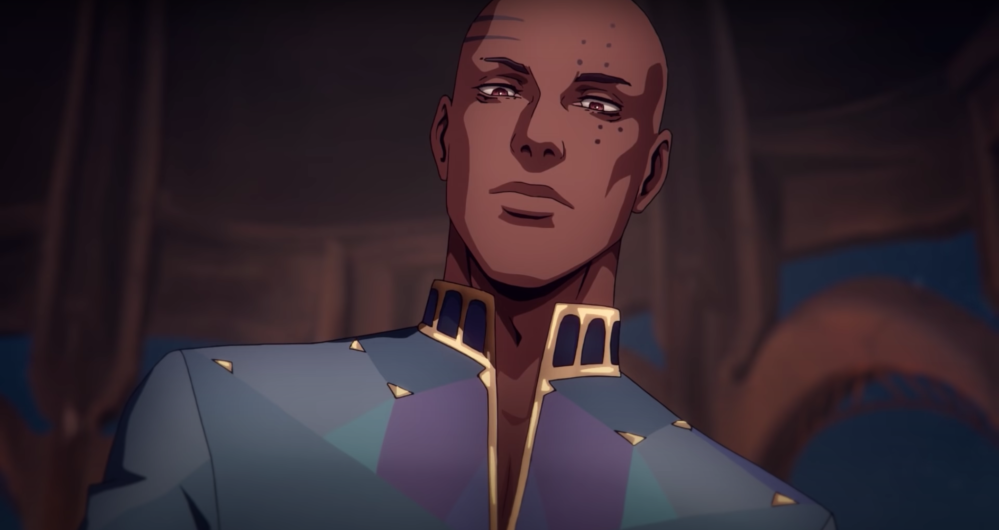
When we meet Isaac in the early seasons of Castlevania, he is quite literally self-flagellating, flaying his back bloody as a kind of penance. In the final season of the show, we see him learn to forgive others, and himself.
He goes through a kind of adolescence, or metamorphosis, and the person who emerges from his wanderings in the desert (both literal and otherwise) is wiser, more capable. He has been tempered by the world, and has achieved a clear, quiet clarity, without losing the bright-eyed idealism of his youth. The outcome is somehow both terrifying and darkly beautiful.
“I have recently begun to consider the future. Which has been a novelty for me. Because I never really thought I had one…
And I have discovered, to some surprise, that I am interested in living. I am interested in building a way to live. And I think I will start here.”
What is the connecting thread between these characters? Similar to last year’s list, I admire their ability to advocate for others, and how they give others “permission to be brave.”
Beyond this, I also admire (envy?) their journeys of growth. They compound their advantages, relentlessly, through disciplined practice.
They discover that true strength isn’t a rigid, brittle thing, but something supple, as playful as liquid light and as concrete as the steel fist of a flood. They achieve the mental fortitude that allows them be both things, simultaneously.
— Emmanuel Quartey (@equartey) January 22, 2018
(If you enjoy my writing and want to support my personal research projects, the best way is to buy me a book!)